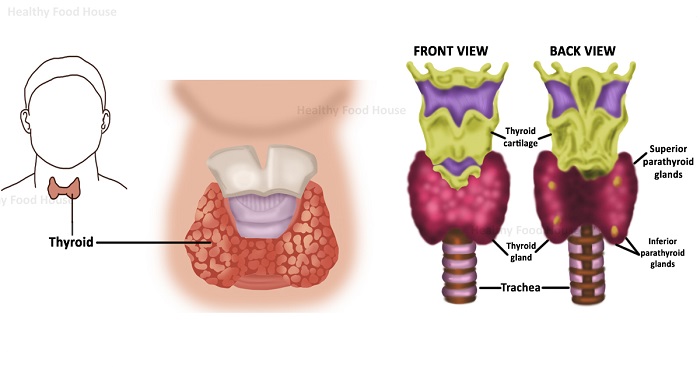Research has found that about 27 million Americans suffer from a thyroid condition, and are not even aware of it!
The symptoms of thyroid disorders can be quite tricky and can be easily mistaken for symptoms of other health problems. Yet, the following symptoms are the most common red flags you mustn’t ignore:
- A Surprising Weight Gain
If you have not changed your diet or workout routine, you might suffer from an underactive thyroid function, and the hormone deficiency leads to reduced metabolism and less calorie burning.
- Daytime tiredness
If you are craving for an afternoon nap and you are tired all day long, it might be a symptom of underactive thyroid, and the body needs more thyroid hormones to produce energy.
- Changed Sleep Patterns
If you cannot sleep at night, it might be due to the overactive thyroid gland which pumps out T3 and T4 hormones in excess, and they over stimulate the central nervous system, causing insomnia.
- Sudden Weight loss
If you have not changed your diet, if you still eat the same in amount and variety, and you haven’t changed the exercising plan, and you still lose weight, your thyroid might be overactive thyroid and increases the metabolism.
- Excessive sweating
Excessive sweating might be a symptom of a hyperactive thyroid, and high hormone levels rev up the metabolism and cause high body temperature.
- Too Much Energy
As the body processes are accelerated, you might feel too energetic.
- Thinning Hair
An underactive or overactive thyroid influences the hair growth cycle, and the hair looks thinner, especially from the eyebrows.
- Brain Fog
When the function of the thyroid is somehow disturbed, it affects the function of the brain and causes brain fog, mental fatigue, and a subtle loss of memory.
- Anxiety for No Reason
If you have started to feel anxious and worried often about small, insignificant things, you might be suffering from some thyroid issue.
- Changed Bowel Habits
If your bowel habits have changed, it might be due to an underactive thyroid. Frequent constipation can be caused by underactive thyroid glands, while regular bowel movement might be a result of an overactive thyroid.
- Infertility or Miscarriage
Women who suffer from infertility or have had a miscarriage, and have no family history of such issues, should check their thyroid levels, as the ovulation might be affected by low thyroid levels.
- Early and Late Dates
If the thyroid does not produce enough hormones, your periods might become longer, heavier, and never on time. In the case of an overactive thyroid, the periods become lighter and occur after long pauses.
Source: www.curejoy.com
